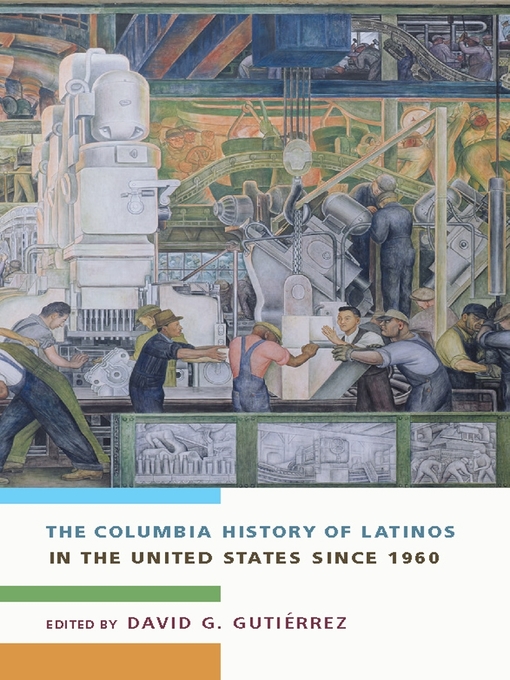Latinos are now the largest so-called minority group in the United States—the result of a growth trend that began in the mid-twentieth century—and the influence of Latin cultures on American life is reflected in everything from politics to education to mass cultural forms such as music and television. Yet very few volumes have attempted to analyze or provide a context for this dramatic historical development. The Columbia History of Latinos in the United States Since 1960 is among the few comprehensive histories of Latinos in America. This collaborative, interdisciplinary volume provides not only cutting-edge interpretations of recent Latino history, including essays on the six major immigrant groups (Mexicans, Cubans, Puerto Ricans, Dominicans, Central Americans, and South Americans), but also insight into the major areas of contention and debate that characterize Latino scholarship in the early twenty-first century.
This much-needed book offers a broad overview of this era of explosive demographic and cultural change by exploring the recent histories of all the major national and regional Latino subpopulations and reflecting on what these historical trends might mean for the future of both the United States and the other increasingly connected nations of the Western Hemisphere. While at one point it may have been considered feasible to explore the histories of national populations in isolation from one another, all of the contributors to this volume highlight the deep transnational ties and interconnections that bind different peoples across national and regional lines. Thus, each chapter on Latino national subpopulations explores the ambiguous and shifting boundaries that so loosely define them both in the United States and in their countries of origin. A multinational perspective on important political and cultural themes—such as Latino gender systems, religion, politics, expressive and artistic cultures, and interactions with the law—helps shape a realistic interpretation of the Latino experience in the United States.
-
Description
-
Details

Kindle Book
- Release date: July 20, 2004
OverDrive Read
- ISBN: 9780231508414
- Release date: July 20, 2004
EPUB ebook
- ISBN: 9780231508414
- File size: 2123 KB
- Release date: July 20, 2004
Formats
Kindle Book
OverDrive Read
EPUB ebook
subjects
Languages
English
